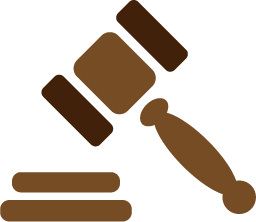Is A "Chapter 20" Bankruptcy The Right Choice For You?
A so-called "Chapter 20" bankruptcy is a pair of petitions that are sometimes used to address both secured and unsecured debts. The first leg of the process is filing for a Chapter 7 discharge of your unsecured obligations. Once the court has signed off on that, the idea is to then restructure your secured debts under Chapter 13. The idea of 7 plus 13 is what gives rise to the tiny legal joke of calling it "Chapter 20."
Would a bankruptcy attorney recommend this approach to you, though? Let's look at why they may or may not encourage someone to try this sort of complex filing.
Should You Simply File Under Chapter 7?
If you only have unsecured debts, there's usually no reason to file anything but a Chapter 7 case. The only reason to do so is if a bankruptcy attorney is confident you have too much income to qualify for Chapter 7. The simple line for Chapter 7 eligibility is when a person earns less than half of their state's median income.
You can still ask the court to accept a Chapter 7 case if you don't qualify on that relatively automatic basis. However, the court will order a means test. That means they'll examine your finances and debts to determine if you can afford to pay the debts. If you need a little help, the court might encourage you to refile under Chapter 13.
Keeping Secured Assets
Most folks who use the Chapter 20 approach want to hold onto specific secured assets, particularly their homes or cars. The idea is to have things like utility bills and credit card debts discharged under Chapter 7. Without those debts hanging over them, the petitioners can then restructure their loans or mortgages under Chapter 13 because they can now afford to pay.
An attorney can't emphasize strongly enough that this is a complicated way to go through bankruptcy. While it's always wise to retain bankruptcy attorney services, it goes double here.
Likewise, you should expect a lot of scrutiny from the court. The judge will want to see proof that you will be able to make payments under the proposed Chapter 13 plan once they discharge the other debts. Otherwise, the court would prefer that all of the debts will go into a Chapter 7 case to just get on with the inevitable.
Also, there is a chance that the Chapter 13 petition fails after the Chapter 7 one succeeds. You won't be able to file another bankruptcy, and the court won't stay repossessions or foreclosures at that point.
Talk to a bankruptcy attorney to figure out what is best for your situation.
